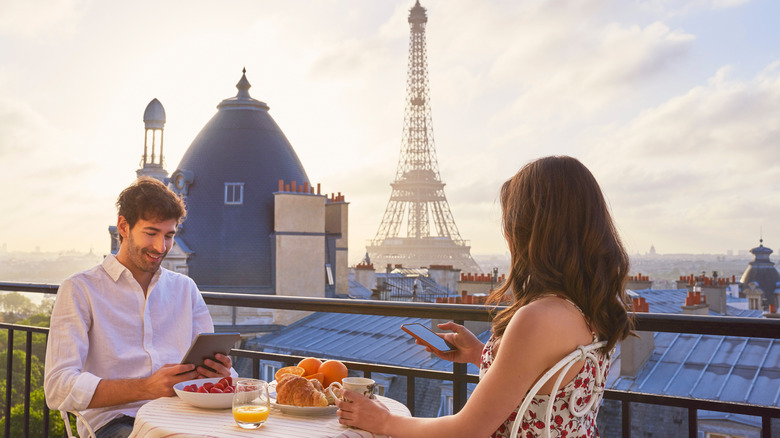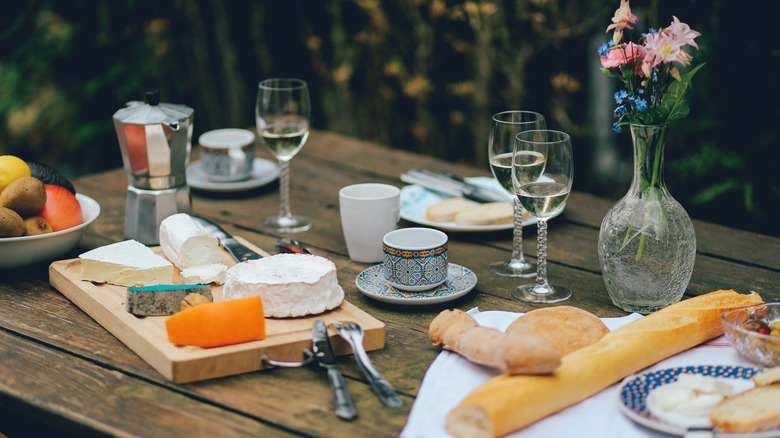What Lunchtime Looks Like In France
In America, people take lunch breaks that typically last for around 30 minutes to an hour, which is a very quick respite from a busy work day. The shorter your lunch break is, the less time you have to actually make food, so bringing a ready-made, packed lunch to work is the norm. France has a much more leisurely approach to lunch breaks that the locals take very seriously. Instead of a meager hour or less, everyone, including school children, is allotted two full hours to eat and wind down with friends or family. This stems from the country's passion for food and its firm belief that eating lunch slowly is the proper (and only) way to do it.
Everyday from 12 to 2 p.m., shops and businesses in France close their doors and restaurants are flooded with lunchers. The stresses and professionalism tied to one's job are shed in favor of a light-hearted gathering with friends who are keen on keeping work out of conversation topics altogether. A three-course lunch is traditional in France, paired with a glass of wine. This is the biggest meal eaten all day, which accounts for half of the day's total calories eaten, so the two-hour time window allows for a comfortable digestion period as well.
Not only are French workers accustomed to taking a full two hours to enjoy their midday meals, they are required by law to leave their desks to do so.
Eating lunch at work has been banned in France for over a century
If an expat living in France were to work through their lunch hours or use up less than two hours, they can expect a lot of side-eye from their French coworkers. This was the experience of one New Yorker who moved to a town near Paris for work, who described the confusing experience to Transitions Abroad. "Only through hearing rumors did I realize that what I thought was an honorable work ethic on my part was so intense that [my coworkers] actually thought I was working to get them fired or steal their jobs." Slowing down to take pleasure in the French lunch break is seen as a sacred privilege throughout the country, where there is an active ban prohibiting employees from scarfing down food at work.
While this law is a great motivator for getting out of the office and enjoying life, that's not the reason it was initially enacted. In the late 1800's, French factory workers were operating heavy machinery surrounded by fumes and it was easy to spread germs in such tight spaces. To lessen the spread of bacteria through food and disease contraction, the government enforced the lunch break, which was only suspended briefly in 2021 due to the pandemic. Eating delicious food during "le déjeuner" is now widely regarded in France as a necessity that improves workplace mental health, prevents burnout, and encourages a positive attitude about one's job.

